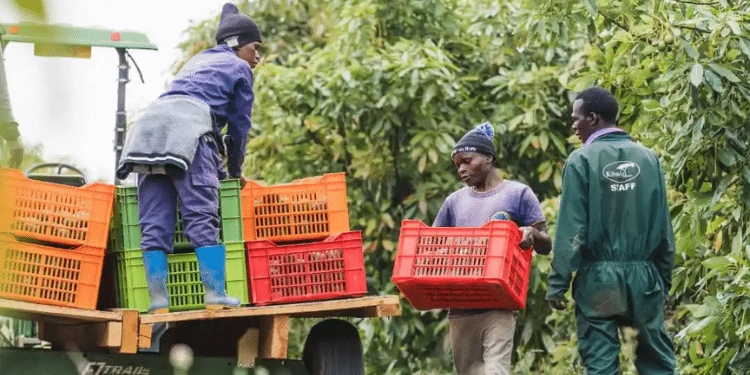In a move to protect public health, the environment, and the nation’s agriculture, the Ministry of Agriculture has banned pesticide products following a comprehensive scientific review.
The Ministry of Agriculture and Livestock Development, through the Pest Control Products Board (PCPB), announced the withdrawal of 77 end-use pesticide products and the restriction of 200 others on various crops.
According to a press statement issued on June 23, an additional 151 products are now under review and remain banned pending further evaluation, expected by December 2025.
Cabinet Secretary Mutahi Kagwe said the action reflects Kenya’s strengthened commitment to align its agricultural standards with global best practices and ensure food safety for all Kenyans.
“In the meantime, the use or importation of the 151 products remains prohibited until the end of the review,” Mutahi Kagwe stated.
Kenya Bans Harmful Pesticide Products
“We have taken decisive regulatory action to withdraw 77 end-use products from the Kenyan market and to restrict the use of 200 products on various crops,” part of the statement read.
Also Read: Why Nyandarua Potatoes Are Unsafe- Egerton Research
Among the banned products are toxic chemicals such as Acephate, Chlorothalonil, and Diuron, along with legacy pesticides like DDT, Aldrin, and Endosulfan, which are already banned in many countries.
The restrictions also apply to widely used chemicals such as Abamectin, Imidacloprid, and Mancozeb, now limited to non-edible crops or specific use conditions.
“The Ministry remains vigilant and will continue to review and update our regulatory frameworks in line with emerging scientific evidence and global developments,” the statement read.
The Ministry has also rolled out strict regulations to prevent future risks.
Regulations to Kenyans
These include a rule requiring that all pest control products (PCPs) registered in Kenya also be registered in their country of origin.
Also Read: Japan Agriculture Minister Forced to Resign for Eating Free Rice
In addition, the rules will prohibit the registration of any pesticide banned under international multilateral environmental agreements and bar the importation of products not approved in the EU, U.S., Australia, or Canada while under review.
The draft Pest Control Products Bill, which aims to strengthen pesticide regulation, has already been approved by the Cabinet and is expected to be tabled in Parliament soon.
Kagwe explained that the Ministry will support affected farmers through education, extension services, and promotion of integrated pest management (IPM) strategies as safer alternatives.
The Ministry has published a detailed schedule of the banned and restricted chemicals, which will guide farmers, importers, and pesticide dealers moving forward.
Follow our WhatsApp Channel and X Account for real-time news updates.












































































